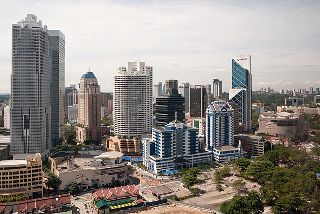 The Malaysian economy’s expansion is predicted to slip to 4.7 percent in 2015, lower than its 5.8% growth in 2014 and below government estimates of 5% to 6% made during Budget 2015 hearing, according to a rating agency.
The Malaysian economy’s expansion is predicted to slip to 4.7 percent in 2015, lower than its 5.8% growth in 2014 and below government estimates of 5% to 6% made during Budget 2015 hearing, according to a rating agency.
Malaysian Rating Corporation (MARC) sees the Southeast Asian nation’s gross domestic product (GDP) growth slowing from a combination of weaker private consumption, export slowdown as global trade cools, and dropping oil prices.
MARC foresees consumer demand abating due to inflation, eroding the strength of private consumption, the biggest driver of domestic growth with a 52% contribution to GDP.
It also expects export activity to slow down following weaker global trade and uncertainties in the advanced economies.
Declining oil prices in the world market will impact on Malaysia’s GDP growth as well, it continued.
Other factors including subsidy cuts, imposition of the goods and services tax, tighter standards for household credit, and the central bank’s move toward more prudent monetary measures may add to curb growth.
Investments are seen to be critical to the country’s headline growth in 2015 considering the expected moderation in private consumption.
However, MARC notes that private investment pace will likely normalize as the administration tightens its belt on the back of a less-than-rosy outlook on the global economy and reduced oil revenue.
But the Ministry of International Trade and Industry (MITI) expressed optimism over Malaysia’s first quarter 2015 (1Q15) trade performance amid the uncertainty in current oil prices.
Bernama, Malaysia’s national news agency, reported that MITI Deputy Minister Datuk Lee Chee Leong said that despite oil prices being expected to weaken further, the manufacturing and tourism segments are projected to support 1Q15 trade data.
“Judging from the trade figures for last year, it is still slightly better as compared to 2013. Although the ringgit has depreciated at present, I expect the two segments to balance out our trade data. But of course, it also depends on the global economic environment as well,” he said.
Photo: CEphoto




